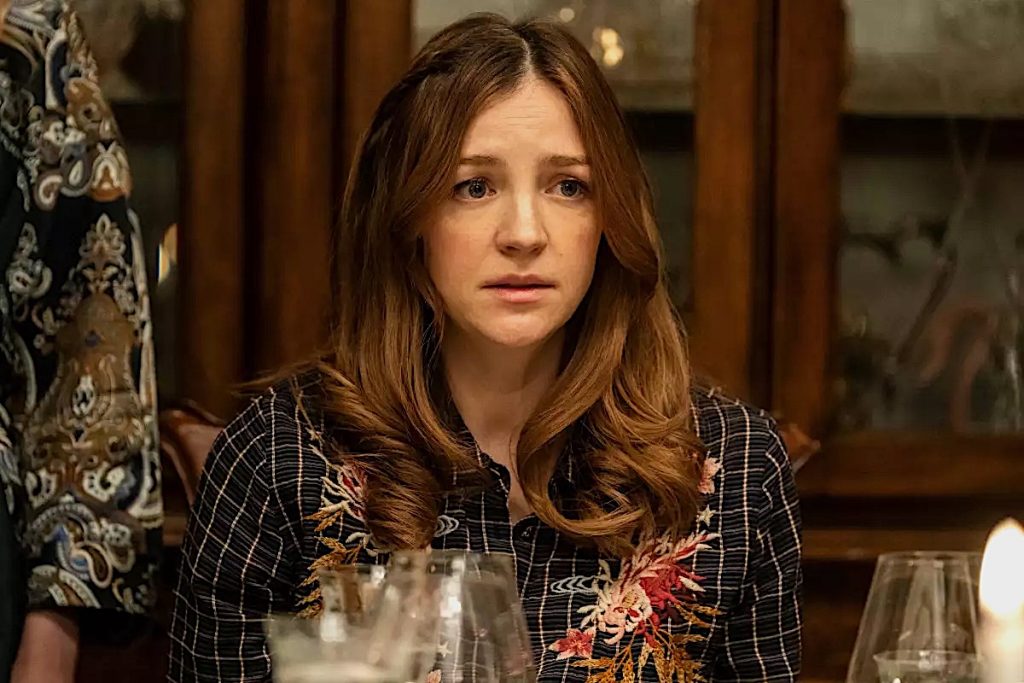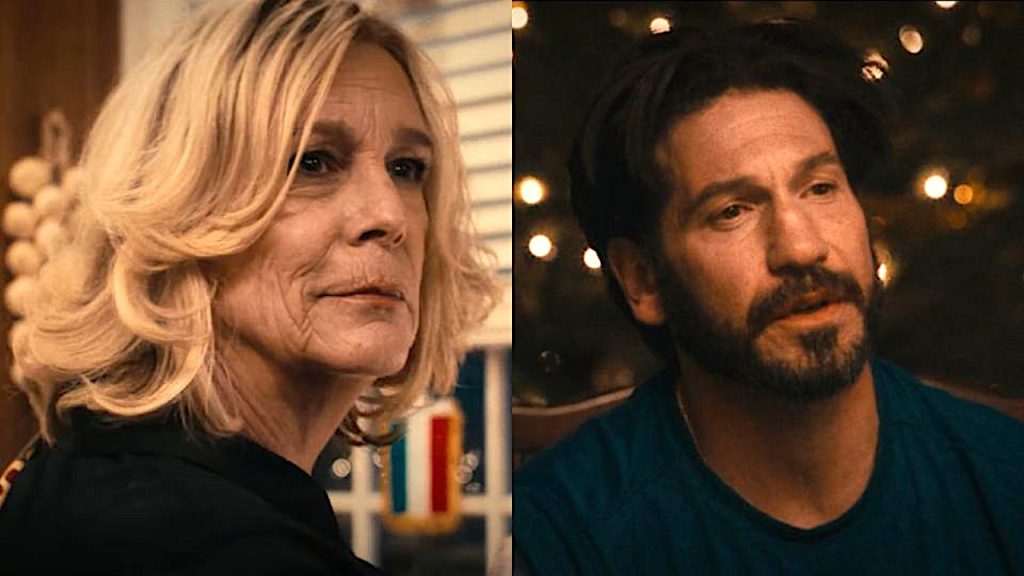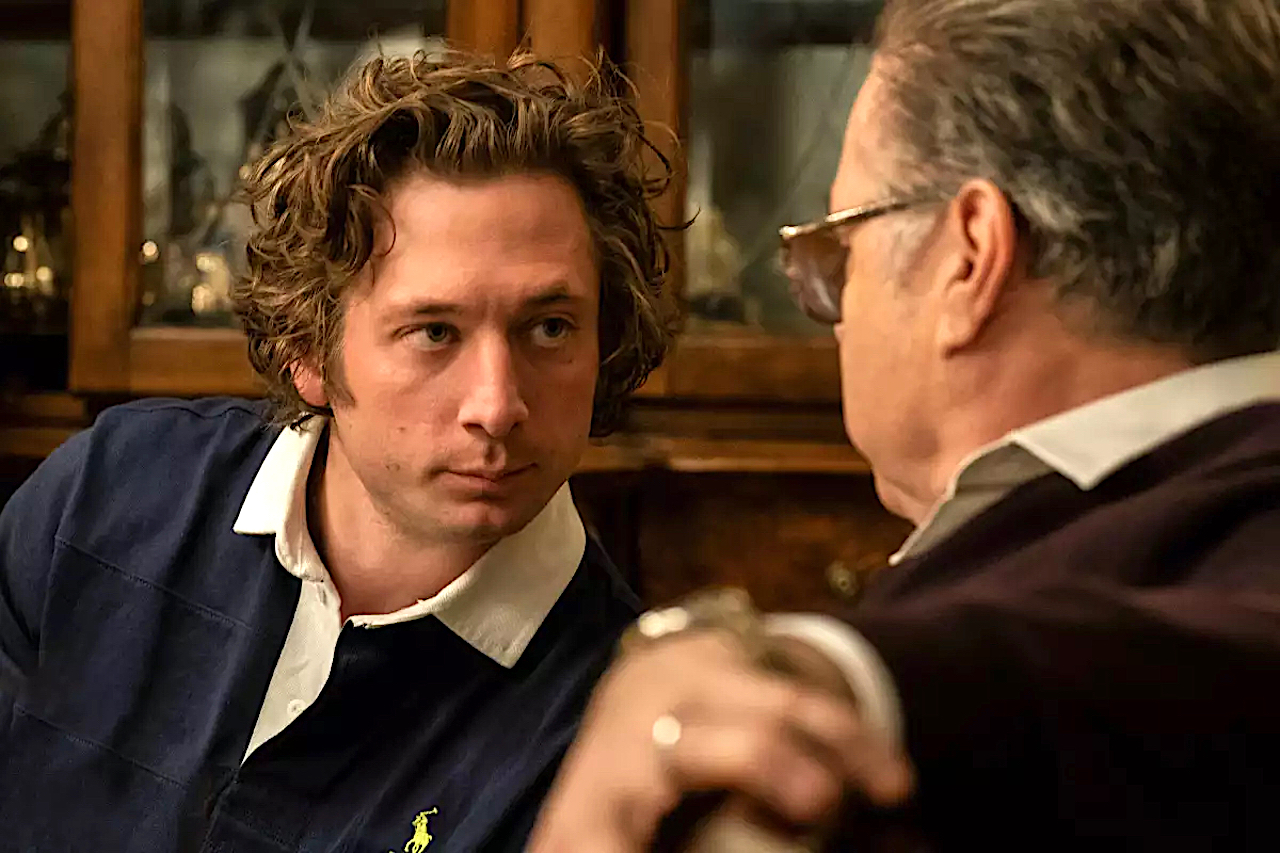- TV Writer & Playwright Sofya Levitsky-Weitz Talks “The Dropout” & “The Bear” (Part 1)
- TV Writer & Playwright Sofya Levitsky-Weitz Talks “The Dropout” & “The Bear” (Part 2)
“In The Bear, I was really curious about pulling through Sydney (Ayo Edebiri) and pulling through Sugar (Abby Elliott), says Sofya Levitsky-Weitz. “How do we look at these sort of the women in this show even if they don’t always come to the forefront? Carmey is the lead, but we also have this co-lead in Sydney.”
Sofya’s goal is to get to deeply know each character and determine “how we we push all of these characters to their limits emotionally in all these complex interweaving ways.” This is how the writer finds her way into any story, regardless of the television show. This is what excites and challenges Sofya as a writer.
“I think The Bear is such a great example of a show that’s been successful because it is so much itself and it’s so unapologetically specific in what it wants to do,” asserts Levitsky-Weitz.
“In season two of The Bear, we want audiences to be holding their breaths, to be on the edges of their seats, and to be feeling how alive this is,” she continues.

Sugar Berzatto (Abby Elliot) Photo by Chuck Hodes/ FX
S2 Ep 6 – Fishes
Many TV series have a standalone episode, often focusing on a particular family event such as Christmas, birthday, or Thanksgiving. Episode six, simply titled Fishes, is an intense, chaotic flashback of a Berzatto Christmas that still haunts them. It’s unapologetic and relentless as it sears through the dynamics of a wounded family in deep emotional distress without a lifeline. Every anxiety, every trauma, every emotional trigger in this episode is turned up to eleven. Sofya Levitsky-Weitz appreciates this trend over the past few years as television shows increasingly take more creative risks.
Such episodes may become risky because they may yank the audience from the story flow of the season. But, if told correctly, they serve as intricate psychological backstories which makes us better understand how the characters came to be. At its heart, Fishes illustrates the Berzattos in a past life as they navigate a tightrope of noisy, controlled chaos without much of a discernible plot line. It’s a vérité, unfiltered snapshot into their lives.
“TV is getting more experimental, a little more artistic, and letting us live in moments. It lets us live with characters we might normally not get the time to be with. But, I think like anything, it can be overdone; it can be misplaced.”
Showrunner Chris Storer conceived a flashback episode during season one. It was later envisioned for the middle of season two, but was shifted when the episode count dropped to eight. His goals were simple, “This has to move, this has to be fast.”
“We’ve got to live in those characters and those moments a little bit more. And I think it’s really successful in this show because you have this cast of characters that all come from really different places and you get to really see the way that they are alone or in a different environment. I think it worked really well because you understand why these characters are the way that they are. You see where they come from,” continues Sofya.
Another underlying theme of The Bear is the idea of “generational trauma and understanding how things get passed down through family, how you break certain cycles, how you continue certain cycles, and what it means to try to break out of them,” says Levitsky-Weitz.

Donna Berzatto (Jamie Lee Curtis) & Michael Berzatto (Jon Bernthal). Photo by Chuck Hodes/ FX
Carmey also has a love interest in season two. “He starts to open up and become a bit more vulnerable. And then you go straight into episode six where you understand why a relationship is so hard for him. And also, this is why he’s ended up right back in that cycle in the restaurant that he’s both trying to break, but also a part of.” This trauma will continue to pass through generations until it is finally dealt with and put to rest.
Fishes gives the audience a further glimpse into the secrets of these characters which enrich our perspective of them. Despite the appearance of improvised chaos, Fishes is very tightly-scripted. “This was always going to be Chris Storer’s [who also directed] centerpiece. We did break a lot of what happened in the episode because we also wanted to look at how it interacted with the rest of the season as well. But it was definitely less structured than some of the other episodes.” It certainly was a case of throwing every pieces of emotional baggage the writers had at the episode.
You don’t need to be Italian to appreciate the Christmas ritual. You don’t even need to be Christian. But most people understand family arguments, resentments, and neurotic conversations occurring simultaneously. “Chris wanted to have a handle on how he wanted this to feel and his personal experiences with his family and his background.”
Despite the heavy scene breakdown and scripting, there was still some room for improv in Fishes. “A lot of stuff I recognized, had built been out in the writers’ room from when I read the original script that Chris wrote. You’ve got a stick of dynamite here and you need to figure out a way of not letting it explode in your hand,” ponders Sofya.
There’s a lot to process in Fishes whether it’s following what Donna (Jamie Lee Curtis), or Carmey, or the crazy uncles dancing with hats are doing. Once you think you’ve got a scene covered, you quickly move to another room. Then the fish are burning. OMG. This choreographed familial train wreck had to allow for the audience not to catch every snippet of conversation.
To its credit, Fishes did give the audience occasional space to breathe from the Christmas frenzy. It was countered with really beautiful, quiet moments such as when you have the siblings on the porch or Richie (Ebon Moss-Bachrach) and Tiffany (Gillian Jacobs) up in the bedroom. It’s the time between boxing rounds where you wash your mouthguard and your coach massages your shoulders before the bell.
“You have these moments where you’ve earned a real slowing down, a real of focus. And then, when you go back to the chaos, you appreciate both sides of it. You’re really able to be with whatever that speed and pace and emotion is.”
In Conclusion
Most of Sofya Levitsky-Weitz’s stories have a semblance of what it means to be a woman in the world. This isn’t necessarily confined to romantic relationships. Sydney and Carmey are in a business partnership. “There’s this question of going for what you want as a woman, which you can see in Elizabeth Holmes in The Dropout as well. And I think, I continue to be interested in those larger questions about being a woman in any part of our society that you know wants a lot and wants to achieve certain things.”
Unbridled ambition may have sinister undertones. “It’s not even about self-grandiocism. It’s about living your best life,” muses Sofya Levitsky-Weitz.
[More: “Raw & Absurd” How Showrunner Elizabeth Meriwether Describes ‘The Dropout’]
